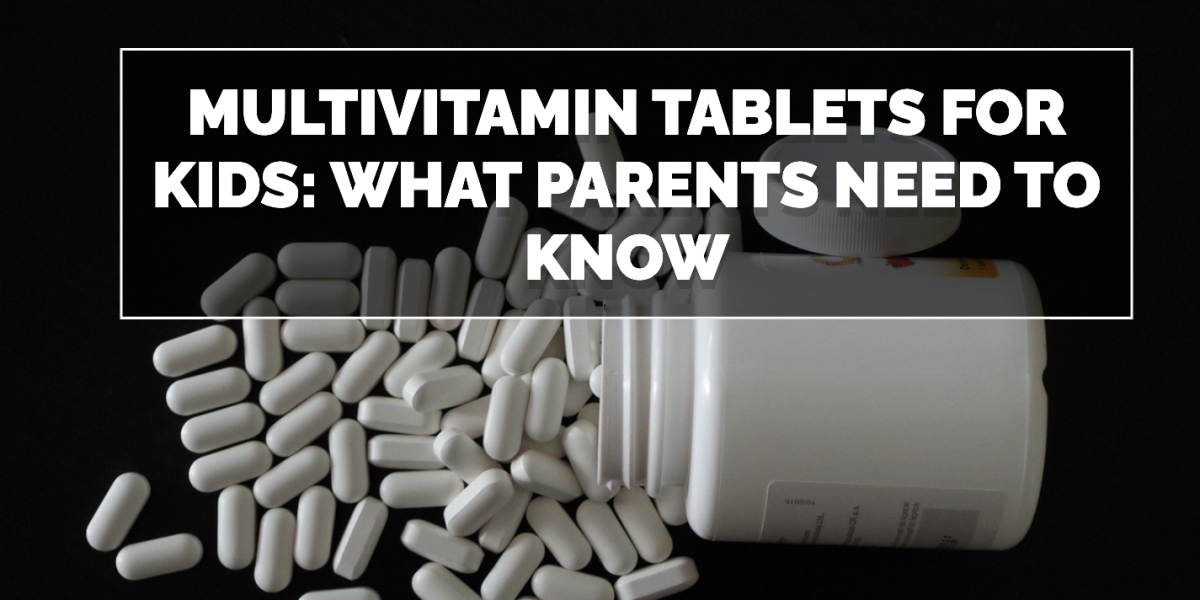In today's fast-paced world, ensuring that children receive all the essential nutrients for their growth and development can be challenging. Despite our best efforts to provide balanced meals, children may still need more nutrition. This is where multivitamin tablet can play a crucial role. Let's explore why multivitamins are important for kids, how parents can choose the best ones, and what research says about their safety and efficacy.
Importance of Multivitamin Supplementation for Children
Children go through rapid growth and development phases, requiring a wide range of vitamins and minerals to support their overall health. While a balanced diet remains the cornerstone, multivitamin supplements can help fill potential nutrient gaps. Here are some key reasons why parents might consider incorporating multivitamins into their children's daily routine:
- Nutrient Deficiencies:- Even with a healthy diet, children may only sometimes consume adequate amounts of essential nutrients like vitamins A, C, D, and E, as well as minerals such as calcium and iron.
- Supporting Growth:- Vitamins like vitamin D and calcium are crucial for bone development, while vitamin C supports the immune system, helping children stay healthy.
- Busy Lifestyles:- Modern lifestyles can sometimes lead to irregular eating habits or reliance on processed foods, which may lack essential nutrients.
- Picky Eaters:- Many children are selective about the foods they eat, which can result in a limited intake of certain vitamins and minerals.
- Health Conditions:- Some medical conditions or medications may affect nutrient absorption or increase nutrient needs, making supplementation beneficial.
Tips for Choosing a High-Quality Children's Multivitamin Tablet
Not all multivitamins are created equal. To ensure your child gets the best possible supplement, consider these tips when choosing a children's multivitamin:
- Check the Ingredients:- Look for a multivitamin that provides a broad spectrum of vitamins and minerals suitable for your child's age group. Ensure it includes key nutrients like vitamins A, B, C, D, and E and minerals such as iron, calcium, and zinc.
- Age-Appropriate Formulation:- Choose a product specifically formulated for children, as their nutritional needs differ from those of adults.
- No Artificial Additives:- Avoid multivitamins that contain artificial colors, flavors, or unnecessary additives.
- Quality and Safety Standards:- Opt for brands that adhere to stringent quality control standards and have been tested for purity and potency.
- Consider Form (Chewable or Liquid):- Depending on your child's preference, select a chewable tablet or liquid form that is easy to take and digest.
- Consult a Pediatrician:- Before starting any new supplement regimen, consult your child's pediatrician to ensure it's suitable for their individual needs.
Research on the Safety and Efficacy of Multivitamin Use in Children
The safety and efficacy of multivitamin supplementation in children have been subjects of various studies and research efforts. Here’s what current research indicates:
- Safety:- Generally, multivitamins formulated for children are safe when taken as directed. However, excessive intake of certain vitamins or minerals can have adverse effects. It's crucial to follow recommended dosages and consult with healthcare providers if there are any concerns.
- Efficacy:- Studies suggest that multivitamin supplementation can help bridge nutritional gaps in children's diets. Improved nutrient intake has been associated with benefits such as enhanced immune function, better cognitive performance, and support for overall growth and development.
- Specific Benefits:- Vitamin D supplementation, for instance, has been shown to improve bone health and reduce the risk of certain chronic diseases in children living in regions with limited sunlight exposure.
- Individual Needs:- The efficacy of multivitamins can vary based on factors like dietary habits, health conditions, and genetic factors. Tailoring supplementation to meet individual needs is essential for maximizing benefits.
Choosing the Right Multivitamin for Your Child
When selecting a multivitamin for your child, it's important to consider their specific needs and preferences. Here are additional factors to keep in mind:
- Nutrient Requirements:- Depending on your child's age and dietary habits, their nutrient requirements may vary. A multivitamin should complement their diet rather than replace nutrients obtained from food.
- Allergies and Sensitivities:- Be mindful of any allergies your child may have, especially to ingredients commonly found in supplements like gluten, dairy, or specific food dyes.
- Dosage and Form:- Follow the recommended dosage instructions provided on the product label or as advised by your healthcare provider. Choose a form (such as chewable tablets or liquid) that your child can easily consume.
- Brand Reputation:- Research the reputation and reliability of the brand manufacturing the multivitamin. Look for certifications from reputable organizations that attest to quality and safety standards.
- Consultation with Healthcare Providers:- Always consult with your child's pediatrician or a healthcare professional before introducing any new supplement. They can provide personalized advice based on your child's health history and specific nutritional needs.
Common Concerns About Multivitamin Use in Children
Parents often have questions and concerns about giving their children multivitamins. Here are some common queries addressed:
- Do Children Really Need Multivitamins If They Eat Well?
While a balanced diet is ideal, multivitamins can provide reassurance that children are getting essential nutrients, especially during phases of rapid growth or when dietary choices are limited.
- Are Multivitamins Safe for Long-Term Use?
Multivitamins formulated for children are generally safe when used as directed and within recommended dosages. However, healthcare providers should guide long-term supplementation and monitor for any changes in nutritional needs or health status.
- Can Multivitamins Replace Healthy Eating Habits?
No, multivitamins should complement a healthy diet, not replace it. Encouraging children to eat a variety of nutrient-rich foods remains crucial for overall health and well-being.
- What Are Signs That My Child Might Need a Multivitamin?
Signs such as frequent illnesses, slow growth, fatigue, or specific dietary restrictions may indicate a potential need for additional nutrients that a multivitamin can provide. Consult with a healthcare provider for personalized guidance.
Conclusion
In conclusion, multivitamin tablets can be valuable tools for ensuring children receive essential nutrients necessary for their growth, development, and overall well-being. By understanding the importance of multivitamins, selecting high-quality products, and consulting with healthcare providers, parents can make informed decisions to support their child's nutritional needs effectively.
Remember, every child is unique, and their nutritional requirements may vary. By prioritizing a balanced diet and supplementing wisely, parents can help their children thrive and grow into healthy adults.









